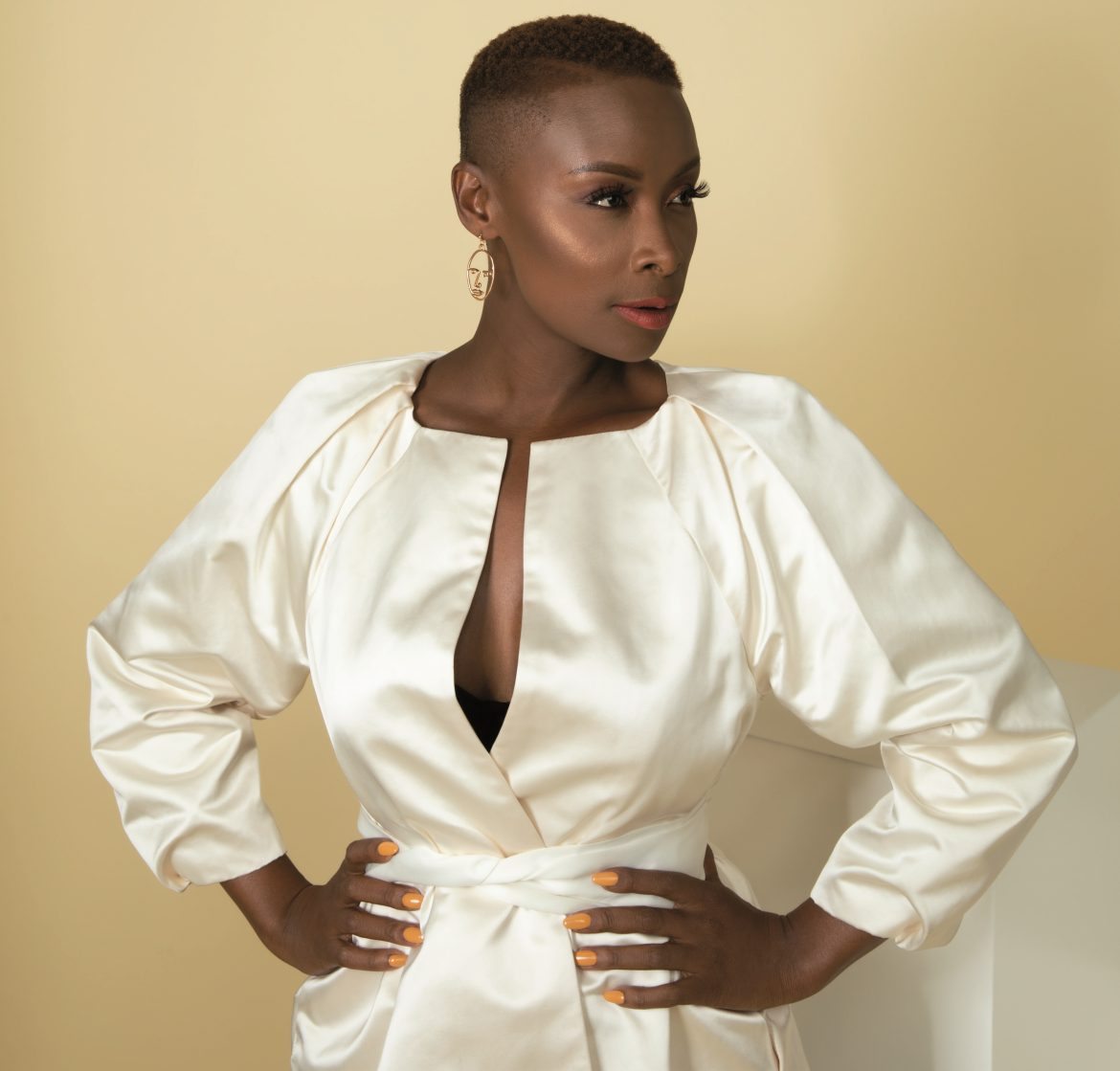In her iconic 2017 Oscar winning speech Viola Davis said, “The one thing that separates women of colour from anyone else is opportunity.”
Since the late 1990’s and for as long as I could remember Bonnie Mbuli has been one the biggest sources of representation for black women, namely dark skinned women in South Africa.
From work as a television host, actress, author and business woman, she has epitomized what it means to be valid as a black woman and in 2019 she does it again in the beauty industry.
Although beauty moguls such as Pat McGrath of Pat McGrath LABS and Robyn Fenty (Rihanna) of Fenty Beauty have soothed our cries in cosmetics with ranges for all skin types and tones, it has not fully opened to the South African market so finally having one of our own do it is all we need.
“My team and I had a meeting with Yardley and we were speaking about ways in which we can work together because it’s been a long time coming for me from different angles,” Mbuli says.
“I have been in the industry for a while now and I am someone who is credible and trusted and so is Yardley, I grew up with my mom using Yardley, everybody remembers a Yardley product in their bathroom or somewhere in the house.”
It was a mission for Mbuli to break the mould and start a conversation in the beauty industry for women that looked like her.
“I am very attractive, I like the way I look but in the beauty space we have been told only a certain look sells make up or can communicate beauty and we all have kind of fallen for it.”
“I wanted women of all skin tones to know that this is your space, whether you are a girl that wears a full face or just eye brows and lipstick.”
Together with the long-standing make-up brand they created a foundation that was particularly formulated for Mbuli’s skin colour titled, Melanin.”

The media personality’s voice has always posed as a sense of validation for women, like her signature short hair worn throughout the decades, even during an era when it was not conventionally accepted to have natural hair in the entertainment space, carrying her “Do you boo!” attitude which is still present today.
“A couple of years ago I moved to LA to pursue my acting career and I had at least five experiences where I went to an audition and the girls were asking why my hair was the way it is and insinuated that if I kept wearing my hair like this that I wouldn’t get any jobs.”
“People kept asking if I was from Africa and a lot of the time I kept explaining that we have wigs in Africa, I just don’t want them, I like this for me no matter what is out there.”
“I have had my challenges where people including employers have said I am not the mainstream kind of beauty and that if I want certain opportunities I would need to do this to look like that.”
Although the actress is often outspoken on social media on issues affecting women, gender and race to name a few, she was less focused on complaining about these experiences publicly and instead was more determined to stay true to herself and eventually be celebrated for it.
“I think people are really attracted to people who stay consistent no matter what happens.”
“We live in a time where it’s all about getting the bag and dealing with the rest later but we don’t realize by the time we get the bag our self-esteem is so damaged and we are a little broken, needing to work hard to get our self-esteem back.
Don’t just do it for the bag!”

Getting into the beauty industry has always been on Mbuli’s vision board emphasising that her purpose never lied in being an actress, model, television or radio host but in her ability to affect people.
“All this other stuff was just a platform for my purpose, helping people heal, reconnect and love themselves. That is the core message of anything I get involved in or any project I want to get involved in.”
Having battled depression, writing about it and speaking openly about it, her advocacy and fighting the stigma against mental health is one purpose that is evident in all she does, something that is still seen as taboo and invalidated within the black community and the ‘Strong black woman’ narrative.
“There was a time in my life where I was totally down and couldn’t see ways out and it felt like this thing was going to destroy my life so I find it important to encourage women the fight is worth it and that one day you won’t even feel like you’re fighting anymore.”
“There are days I wake up and feel very terrible, but it is about refocusing, you win the battle every day you don’t win the entire war. You don’t win your whole life at the beginning.”

As someone who has struggled with depression and anxiety and constantly trying to fight it every day, my conversation with Mbuli becomes more personal and although she emphasises that she may not be a psychologist “This conversation I am having with you is my purpose,” she says as I try find healing in her words.
Her philosophy is to simply switch on the light, either through medication, therapy, physical exercise, diet or Yoga and meditation which she lives by, a candle within the darkness.
“Mental illness is something in the body that affects our identity, weakens and cripples us. We need to stop owning it from a place of ‘Something is wrong with me’, and reposition ourselves,” a theory many psychologist swear by.
“If you’re always practicing switching on the light, it is changing you because you aren’t always starting in the same place.”


